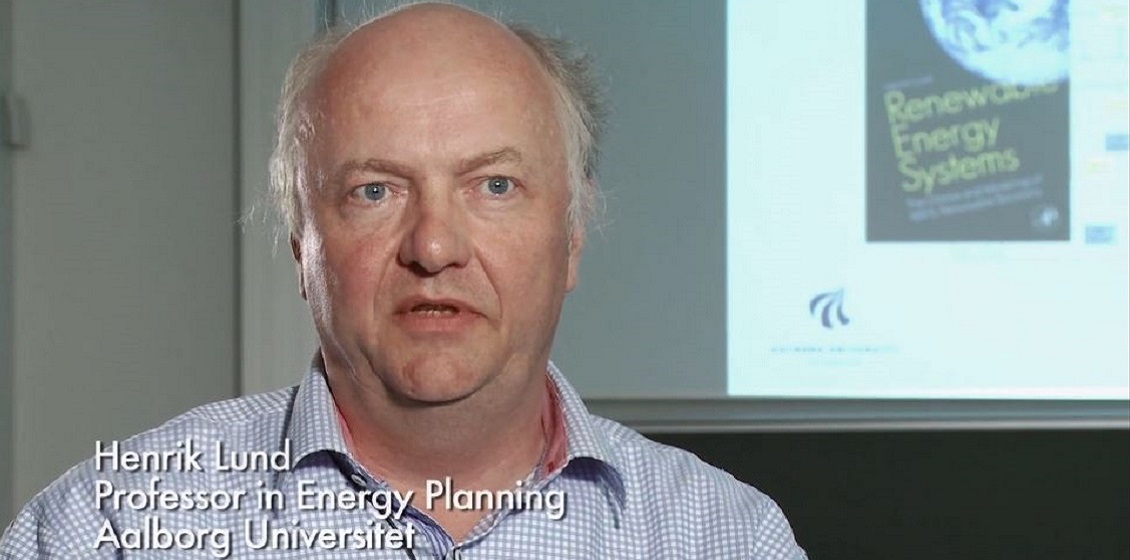Qiaoran Wang travelled from China to the Sustainable Energy Planning Research Group at Aalborg University (AAU) for co-supervision during her PhD project on urbanisation and energy transition in China. China is going through a process of rapid urbanisation. The priority to increase the use of renewable energy motivated Qiaoran Wang to focus on low carbon urbanisation policy. How can renewable energy be used in the residential sector? She spent the final year with the research group and went back to her home university, Yunnan University, South West China, in September 2018 for the PhD defence.
In the student canteen at AAU Department of Planning overlooking Aalborg Harbour, I asked Qiaoran how it all started. “Actually, there was a Chinese scholarship offered for PhD students in China to go abroad. I read some papers by Professor Henrik Lund, who was to become my supervisor at Aalborg University. I wrote to him that I had the chance to get a scholarship and saying: ‘Could you please give me an invitation letter?’ He was quite happy, sent me the letter and I got the scholarship”.
Qiaoran explains that the most important challenge for energy policy in China is to get the data on energy consumption. Data on district heating are available, however data on individual heating are really hard to get. In Denmark, there are no problems collecting data on energy. According to Quiaoran, the Energy Planning Research Group at AAU is working with a software, which has been very useful in her PhD project, and she has benefitted a lot from being exposed to their research at large.
I asked Qiaoran about the experience coming to Denmark, in particular in terms of academic culture. “Did you suffer a culture shock coming here?” “Actually, yes. China is a much more traditional country. In Denmark, the hierarchy in the research group is really less. In China, if I want to talk to my supervisor, I have to stand up and show my respect. And I have to put his title always in front of his name. The first time I spoke to Henrik I was standing up and addressing him ‘professor’. He was laughing and asked me to call him ‘Henrik’. This is really a culture shock. Everything is different: the food, the relationship with your colleagues, and the fact that people can balance their work with their life very well, just work 7 or 8 hours in 1 day. In China, some people stay in the office more than 12 hours. But in Denmark, they work very efficiently”.
“Did you go on the Internet before coming to find out about Denmark?” I asked her. “Yes, actually there are a lot of Chinese students here sharing their experiences on the Internet. Facebook is not allowed in China. We have our own ‘book’. From that website I got to know a lot about Denmark, that is helpful. However, it is not very easy to get the information about Aalborg University. Before I came here, I searched, but the information, in particular about the Department of Planning, is limited. They should put more things on the official website because that is where people get their information”.
“And what are your plans for the future?” “I want to continue research at the university, as my thesis covers only a very small part of the whole problem. If I have the chance, I want to do research here in Denmark, maybe as a post-doc. The career path in China is quite like that of Denmark. In China, many young people want to pursue research, but the positions are not that many”.
“On a longer term, do you expect to maintain working relations?” “Yes, my supervisor at Yunnan University will come here for one week in September 2018 to discuss with Henrik Lund. Among others, he is really interested in Problem Based Learning (PBL). I expect that this is just the beginning of our collaboration with Aalborg University”.
“Will your work increase the understanding of renewable energy?” “We need to improve people’s thinking, away from the cheaper energy. China is a big country. My province is rich in hydropower, but the market is very small. There are different energy policies in different regions. That creates a lot of difficulties if the Eastern part wants to use energy from the Western part. Inside China there is no common market for energy, although there is a national policy”.
Since the interview, an agreement on the cooperation between the two universities has been made; it will cover planning a sustainable energy strategy for Yunnan province and balancing the supply and demand of Yunnan’s hydropower. These projects can be financially supported by the government of Yunnan province and the State Administration of Foreign Experts Affairs (SAFEA). The projects are expected to start in 2019.


